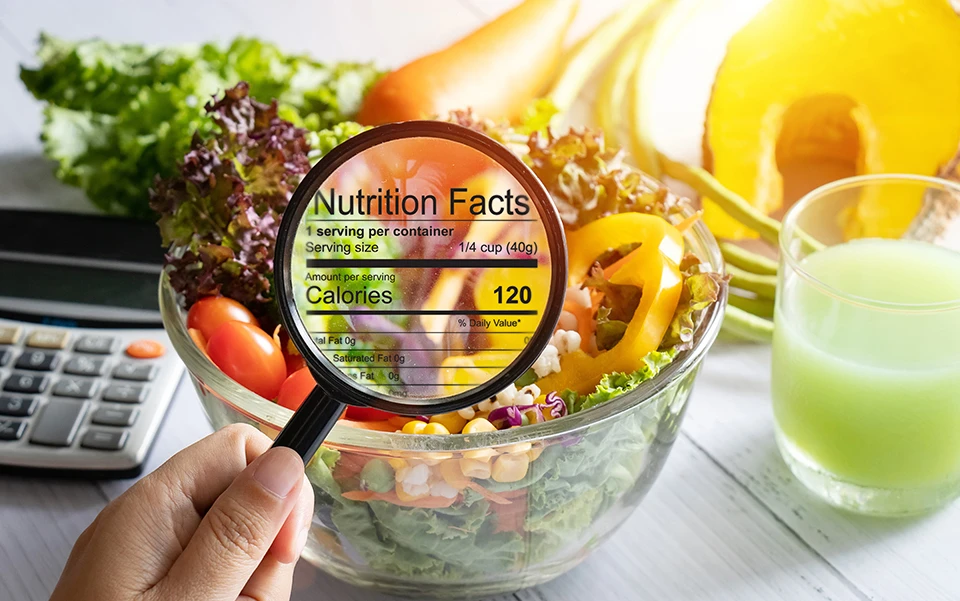Eating a balanced diet doesn’t mean you have to give up your favorite foods. Adding healthy alternatives and adjusting portion sizes can go a long way toward improving your wellness.
Why is Senior Nutrition So Important?
Your metabolism slows as you age, so your body requires fewer calories to operate. Incorporate foods that supply essential vitamins and minerals, such as Vitamin D, Vitamin A, calcium, magnesium, potassium and iron. Getting the right nutrients also boosts your immune system and reduces your chance of developing chronic diseases.
Eat the Right Foods
Fruits and Vegetables
This food group should take up half of your plate. Fresh fruits and vegetables provide fiber, potassium, Vitamin C, iron, Vitamin A and magnesium.
So, add more of these foods to your meals:
- Dark berries
- Spinach and kale
- Oranges, tangerines and grapefruit
- Bell peppers
- Carrots
- Sweet potatoes
Lean Protein
Protein helps build and repair muscle tissue. Adding a variety of protein to a quarter of your plate will give you the energy you need.
Good protein sources include:
- Poultry
- Fish like tuna, trout and tilapia
- Black beans, kidney beans and chickpeas
Whole Grains
Whole grains provide healthy carbohydrates and fiber to keep you fuller longer.
A quarter of your plate should have whole grains like:
- Wheat bread and pasta
- Whole grain rice
- Quinoa
- Oatmeal
- Whole grain cereal
Low-Fat Dairy
Include calcium and Vitamin D in your diet to support strong bones. Doing so reduces your risk of bone fractures and osteoporosis. Dairy products also provide protein and probiotics that support gut health.
Try these low-fat options:
- Milk
- Plain yogurt
- Cheese
- Cottage cheese
- Sour cream
Healthy Fats
Polyunsaturated and monounsaturated fats give you energy and support heart and brain health. Limit trans and saturated fats as they negatively impact your heart health and cholesterol levels.
Sources of healthy fat include:
- Olive oil
- Avocado
- Fatty fish like salmon and cod
- Nuts such as walnuts, pecans and almonds
Create a Meal Plan
Put together a grocery list based on the nutrients you need. Pre-cut fruits and veggies so you have easy access to healthy snacks. Prep your ingredients for your meals a day in advance. Setting up your menu ahead of time takes the guesswork out of cooking. It also reduces the likelihood of you reaching for an unhealthy alternative.
Read the Nutrition Label
Packaged and processed snacks can have high levels of saturated fat, sugar and sodium, so pay attention to nutrition labels. Look for the serving size, calories per serving, percent daily values, cholesterol, total carbohydrates and other dietary values to determine if a food suits your diet.
Reduce Sugar and Sodium Intake
Your body’s ability to regulate your blood sugar level decreases over time. That’s why it’s necessary to manage your sugar consumption, especially if you have or are at risk for diabetes. Too much sodium can cause high blood pressure and cardiovascular issues.
Drink Lots of Water
Dehydration can have adverse effects on your health, including tiredness, poor concentration and dizziness. Your sense of thirst changes as you get older, so you may need to make more of an effort to get six to eight glasses of water daily. Foods like melon, cucumber, celery and broccoli have high water content, which can help keep you hydrated, too.
Diet and Nutrition Services at Embassy Healthcare
A well-balanced diet supports rehabilitation, recovery and overall wellness. Embassy Healthcare offers comprehensive dietary and nutrition services based on your unique needs. Call 216-378-2050 for more information.

